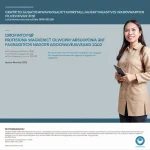Comprehensive Guide: Securing a Singapore Employment Pass for Filipino Professionals in 2024
Introduction: Navigating Singapore’s Employment Landscape for Filipino Professionals
Singapore, a global hub for innovation and finance, continues to attract skilled professionals from around the world. For Filipino professionals, the allure of career advancement and competitive salaries in Singapore is particularly strong, often representing a significant improvement in their quality of life and career trajectory. However, securing a Singapore Employment Pass (EP) in 2024 requires careful navigation of evolving regulations and increasingly stringent requirements set forth by the Ministry of Manpower (MOM). This guide provides a comprehensive roadmap for Filipino professionals aspiring to work in Singapore, covering everything from understanding crucial salary benchmarks and acceptable qualifications to demystifying complex application procedures and avoiding common pitfalls that can derail your application for a Singapore work visa.
The information herein is crucial for maximizing your chances of success in a competitive landscape, particularly in high-demand sectors like IT jobs Singapore, finance jobs Singapore, and healthcare jobs Singapore. For Filipino professionals, understanding the nuances of the EP application is paramount. Many OFWs encounter challenges not only in meeting the technical requirements but also in effectively presenting their skills and experience in a manner that aligns with Singaporean employer expectations. This often involves tailoring resumes and cover letters to highlight relevant achievements and quantifiable results.
Furthermore, networking and leveraging online platforms like LinkedIn can be instrumental in connecting with potential employers actively seeking Filipino talent. Understanding the cultural nuances of Singaporean workplaces, a key aspect of successful integration, is also crucial for long-term career success. Successfully navigating the EP application process also demands meticulous attention to detail and proactive preparation. Gathering all necessary documentation, including verified educational credentials and professional certifications, well in advance is essential. Moreover, understanding the specific requirements for different sectors, such as the need for specialized certifications in IT jobs Singapore or specific licensing requirements in healthcare jobs Singapore, can significantly enhance your candidacy. By proactively addressing potential challenges and demonstrating a commitment to professional development, Filipino professionals can significantly increase their chances of securing a coveted Singapore Employment Pass and embarking on a rewarding career in this dynamic and thriving nation.
Understanding Salary Benchmarks and Sector-Specific Variations
The cornerstone of a successful Singapore Employment Pass (EP) application lies in understanding the salary benchmarks set by the Ministry of Manpower (MOM). These benchmarks are not static; the MOM regularly updates them to reflect the evolving economic landscape and demand for specific skill sets. As of late 2023 and projected into 2024, the minimum qualifying salary for an EP is SGD 5,000. However, Filipino professionals should recognize this as merely a baseline. For older and more experienced applicants, the expected salary increases substantially, often exceeding SGD 8,000 or even SGD 10,000 depending on the role and years of experience.
Failing to accurately assess and meet these escalating salary expectations is a frequent cause of application rejection, highlighting the importance of thorough research. For Filipino professionals seeking OFW Employment Opportunities, understanding this dynamic is crucial for a successful Singapore work visa application. Sector-specific variations are also critical. For instance, IT jobs Singapore, particularly those requiring specialized skills in burgeoning fields like Artificial Intelligence (AI), cybersecurity, or data science, command significantly higher salaries than the minimum threshold.
Companies are willing to pay a premium for talent that can drive innovation and maintain a competitive edge. Similarly, finance jobs Singapore, especially those with expertise in fintech, wealth management, or regulatory compliance, are highly sought after and compensated accordingly. Healthcare jobs Singapore, especially nurses and specialists, remain consistently in high demand due to Singapore’s aging population and world-class healthcare system; competitive packages, often including benefits beyond the base salary, are common. Filipino professionals should research prevailing market rates for their specific role and experience level to ensure their proposed salary aligns with MOM’s expectations and industry standards.
To navigate this complex landscape, Filipino professionals should leverage various resources. Websites like Glassdoor, Salary.sg, and Payscale offer salary data, although it’s important to consider that these are often based on self-reported data and may not be entirely accurate. Direct engagement with recruitment agencies operating in Singapore, particularly those specializing in placing foreign talent, can provide more up-to-date and specific insights. Networking with other Filipino professionals already working in Singapore can also offer invaluable firsthand knowledge.
Furthermore, consulting the MOM’s official website and publications is essential for staying abreast of any policy changes or updates to salary benchmarks. Remember, accurate salary information is a key qualification for securing a Singapore Employment Pass. Beyond the base salary, Filipino professionals should also consider the entire compensation package. This includes allowances for housing, transportation, and meals, as well as benefits such as health insurance, retirement contributions, and paid leave. Understanding the cost of living in Singapore is crucial for evaluating the overall value of a job offer. While Singapore offers excellent career opportunities, it is also an expensive city. Negotiating a comprehensive package that meets your financial needs and reflects your skills and experience is essential. Furthermore, be aware of Singapore’s cultural norms regarding salary negotiation, which tend to be more formal and less aggressive than in some other countries. A well-researched and professional approach will demonstrate your commitment and increase your chances of a successful outcome.
Acceptable Qualifications: Degrees, Certifications, and Skills Assessments
Beyond salary benchmarks, qualifications play a pivotal role in securing a Singapore Employment Pass. A recognized degree from a reputable university is generally a prerequisite for Filipino professionals seeking IT jobs Singapore, finance jobs Singapore, or healthcare jobs Singapore. However, the MOM also considers professional certifications and skills assessments as valuable indicators of competence. For IT professionals, certifications like AWS Certified Solutions Architect, Certified Information Systems Security Professional (CISSP), or Project Management Professional (PMP) can significantly strengthen an application.
Finance professionals may benefit from certifications like Chartered Financial Analyst (CFA) or Certified Public Accountant (CPA). In the healthcare jobs Singapore sector, registration with the Singapore Nursing Board is mandatory for nurses. Skills assessments, particularly in areas where there is a skills gap in Singapore, can also be advantageous. For example, a Filipino engineer with expertise in a niche area like sustainable construction or renewable energy may undergo a skills assessment to demonstrate their proficiency.
These assessments often involve practical tests and interviews designed to evaluate the candidate’s ability to apply their knowledge in a real-world setting. The MOM actively seeks individuals with specialized skills that can contribute to Singapore’s economic growth and technological advancement. Demonstrating a commitment to continuous professional development through relevant training and certifications can significantly improve your chances of obtaining a Singapore work visa. It’s crucial to ensure that qualifications are properly documented and verifiable throughout the Singapore Employment Pass application procedures.
Transcripts, certificates, and letters of recommendation from previous employers should be readily available. The MOM has become increasingly vigilant in verifying credentials, so accuracy and authenticity are paramount. Any discrepancies or inconsistencies in the documentation can lead to delays or even rejection of the application. Furthermore, Filipino professionals should be prepared to provide evidence of their work experience and accomplishments, such as project reports, performance evaluations, and client testimonials. Building a strong and verifiable track record is essential for demonstrating your value to potential employers and the Singapore government. The alignment of your qualifications with the stated salary benchmarks for your role will also be closely scrutinized by the MOM.
Step-by-Step Application Procedure, Documentation, and Common Pitfalls
The EP application process, while primarily online via the MOM’s portal, demands meticulous attention to detail. While the employer typically shepherds the application on behalf of Filipino professionals, understanding each stage is crucial. Beyond the initial steps of account creation and form completion – detailing qualifications, experience, and the proposed salary aligning with established salary benchmarks – lies the critical task of documentation. Passport copies, educational certificates (verified for authenticity), comprehensive employment testimonials showcasing quantifiable achievements, and a meticulously crafted job description are paramount.
The job description, in particular, should not be a generic template; it must articulate the specific skills and experience required for the role and explicitly demonstrate how the candidate’s unique expertise directly benefits the company’s Singaporean operations. This is especially critical given the MOM’s increasing scrutiny of applications. Post-submission, anticipate a processing timeframe of several weeks. However, the application’s journey doesn’t end with submission. Be prepared for potential requests for further information or clarification from the MOM.
Common pitfalls that derail Singapore Employment Pass applications include incomplete documentation, discrepancies in information provided, and a failure to convincingly demonstrate the candidate’s value proposition to the Singaporean economy. To mitigate these risks, proactively address potential concerns in the initial application itself. For instance, if the Filipino professional possesses qualifications from institutions not widely recognized internationally, provide supplementary documentation highlighting the institution’s ranking within the Philippines and its accreditation by relevant professional bodies. Furthermore, clearly articulate how the candidate’s skills address a specific skills gap within the Singaporean labor market, particularly in high-demand sectors like IT jobs Singapore, finance jobs Singapore, and healthcare jobs Singapore.
Recent policy shifts underscore the MOM’s commitment to prioritizing local talent. Employers must now demonstrably prove they have exhausted all avenues for recruiting Singaporean candidates before considering foreign hires. This necessitates a strategic approach for Filipino professionals seeking a Singapore work visa. Emphasize specialized skills and experience not readily available locally. For example, a Filipino IT professional with expertise in niche areas like cybersecurity or data analytics, coupled with relevant certifications (e.g., CISSP, CISM), has a significantly higher chance of success.
Strong letters of recommendation from previous employers, quantifying the candidate’s contributions and highlighting their work ethic, are also invaluable. These letters should not merely state that the candidate was a ‘good employee,’ but rather provide concrete examples of their achievements and the positive impact they had on the organization. Thorough preparation, transparent communication, and a focus on demonstrating unique value are key to navigating the evolving landscape of Singapore’s employment pass regulations for Filipino professionals.
Conclusion: Optimizing Your Application for Success
Securing a Singapore Employment Pass in 2024 requires a strategic and well-prepared approach, particularly for Filipino professionals navigating the complexities of overseas work. Meticulous research into salary benchmarks is paramount; understand that these figures, especially for IT jobs Singapore, finance jobs Singapore, and healthcare jobs Singapore, are not merely guidelines but critical thresholds assessed by the MOM. Filipino professionals must also ensure their qualifications are not only recognized but also demonstrably verifiable through accredited institutions and, where applicable, professional bodies.
Presenting a compelling case involves highlighting unique skills and experiences that directly address Singapore’s evolving economic needs. Avoiding common pitfalls in the application procedures is equally crucial. Many applications falter due to incomplete documentation, discrepancies in information provided, or a failure to adequately address the specific requirements outlined by the MOM for a Singapore work visa. Furthermore, cultural adaptation training can significantly enhance a candidate’s appeal. Demonstrating an understanding of Singaporean workplace norms and a commitment to integrating into the local culture showcases a proactive approach that employers value.
This is particularly relevant given the emphasis Singapore places on workplace harmony and collaboration. The opportunities in Singapore remain substantial, but proactive preparation is the key to unlocking them. Staying informed about policy updates, especially regarding the Fair Consideration Framework, is essential. Filipino professionals should leverage resources such as industry-specific networking events and professional development programs to gain a competitive edge. By proactively addressing potential challenges and showcasing a commitment to both professional excellence and cultural sensitivity, Filipino professionals can significantly increase their chances of success in securing a Singapore Employment Pass and building thriving careers in this dynamic nation.


